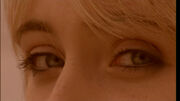Kimberly AJ (talk | contribs) No edit summary |
Kimberly AJ (talk | contribs) (→Lyrics) |
||
| (21 intermediate revisions by the same user not shown) | |||
| Line 1: | Line 1: | ||
| − | '''Cradle Song''' is the common name for a number of children's [http://en.wikipedia.org/wiki/Lullaby lullabies] with similar [http://en.wikipedia.org/wiki/Lyrics lyrics], the original of which was [http://en.wikipedia.org/wiki/Johannes_Brahms Johannes Brahms]'s Wiegenlied: Guten Abend, gute Nacht ("Good evening, good night"), Op. 49, No. 4, published in 1868 and widely known as '''Brahms's Lullaby''' The lyrics of the first verse are from a collection of German folk poems called ''[http://en.wikipedia.org/wiki/Des_Knaben_Wunderhorn Des Knaben Wunderhorn]''<sup class="reference" id="cite_ref-swafford_1-0" style="line-height:1em;unicode-bidi:-webkit-isolate;color:rgb(0,0,0);font-family:sans-serif;">[http://en.wikipedia.org/wiki/Brahms%27s_Lullaby#cite_note-swafford-1 [1]]</sup> |
+ | [[File:Eyes.jpg|thumb|Chloë Agnew's eyes]]'''Cradle Song''' is the common name for a number of children's [http://en.wikipedia.org/wiki/Lullaby lullabies] with similar [http://en.wikipedia.org/wiki/Lyrics lyrics], the original of which was [http://en.wikipedia.org/wiki/Johannes_Brahms Johannes Brahms]'s Wiegenlied: Guten Abend, gute Nacht ("Good evening, good night"), Op. 49, No. 4, published in 1868 and widely known as '''Brahms's Lullaby''' The lyrics of the first verse are from a collection of German folk poems called ''[http://en.wikipedia.org/wiki/Des_Knaben_Wunderhorn Des Knaben Wunderhorn]''<sup class="reference" id="cite_ref-swafford_1-0" style="line-height:1em;unicode-bidi:-webkit-isolate;color:rgb(0,0,0);font-family:sans-serif;">[http://en.wikipedia.org/wiki/Brahms%27s_Lullaby#cite_note-swafford-1 [1]]</sup> and the second stanza was written by Georg Scherer (1824–1909) in 1849. The lullaby's melody is one of the most famous and recognizable in the world, used by countless parents to sing their babies to sleep.<sup class="reference" id="cite_ref-2" style="line-height:1em;unicode-bidi:-webkit-isolate;color:rgb(0,0,0);font-family:sans-serif;">[http://en.wikipedia.org/wiki/Brahms%27s_Lullaby#cite_note-2 [2]]</sup> The Lullaby was dedicated to Brahms's friend, Bertha Faber, on the occasion of the birth of her second son. Brahms had been in love with her in her youth and constructed the melody of the ''Wiegenlied'' to suggest, as a hidden [http://en.wikipedia.org/wiki/Counter-melody counter-melody], a song she used to sing to him.<sup class="reference" id="cite_ref-swafford_1-1" style="line-height:1em;unicode-bidi:-webkit-isolate;color:rgb(0,0,0);font-family:sans-serif;">[http://en.wikipedia.org/wiki/Brahms%27s_Lullaby#cite_note-swafford-1 [1]]</sup> The lullaby was first performed in public on 22 December 1869 in [http://en.wikipedia.org/wiki/Vienna Vienna] by Louise Dustmann (singer) and [http://en.wikipedia.org/wiki/Clara_Schumann Clara Schumann] (piano).<sup class="reference" id="cite_ref-3" style="line-height:1em;unicode-bidi:-webkit-isolate;color:rgb(0,0,0);font-family:sans-serif;">[http://en.wikipedia.org/wiki/Brahms%27s_Lullaby#cite_note-3 [3]]</sup><sup class="reference" id="cite_ref-4" style="line-height:1em;unicode-bidi:-webkit-isolate;color:rgb(0,0,0);font-family:sans-serif;">[http://en.wikipedia.org/wiki/Brahms%27s_Lullaby#cite_note-4 [4]]</sup> |
| + | |||
| + | ==Lyrics== |
||
| + | Roses whisper "good night"<br /> |
||
| + | 'Neath silvery light, <br /> |
||
| + | Asleep in the dew <br /> |
||
| + | They hide from our view; <br /> |
||
| + | When the dawn peepeth through <br /> |
||
| + | God will wake them and you<br /> |
||
| + | When the dawn peepeth through <br /> |
||
| + | God will wake them and you |
||
| + | |||
| + | Slumber sweetly my dear, <br /> |
||
| + | For the angels are near <br /> |
||
| + | To watch over you <br /> |
||
| + | The silent night through <br /> |
||
| + | And to bear you above <br /> |
||
| + | To the dreamland of love <br />And to bear you above <br />To the dreamland of love |
||
| + | [[Category:Songs]] |
||
| + | [[Category:Lullabies]] |
||
Latest revision as of 12:09, 7 February 2014

Chloë Agnew's eyes
Cradle Song is the common name for a number of children's lullabies with similar lyrics, the original of which was Johannes Brahms's Wiegenlied: Guten Abend, gute Nacht ("Good evening, good night"), Op. 49, No. 4, published in 1868 and widely known as Brahms's Lullaby The lyrics of the first verse are from a collection of German folk poems called Des Knaben Wunderhorn[1] and the second stanza was written by Georg Scherer (1824–1909) in 1849. The lullaby's melody is one of the most famous and recognizable in the world, used by countless parents to sing their babies to sleep.[2] The Lullaby was dedicated to Brahms's friend, Bertha Faber, on the occasion of the birth of her second son. Brahms had been in love with her in her youth and constructed the melody of the Wiegenlied to suggest, as a hidden counter-melody, a song she used to sing to him.[1] The lullaby was first performed in public on 22 December 1869 in Vienna by Louise Dustmann (singer) and Clara Schumann (piano).[3][4]
Lyrics[]
Roses whisper "good night"
'Neath silvery light,
Asleep in the dew
They hide from our view;
When the dawn peepeth through
God will wake them and you
When the dawn peepeth through
God will wake them and you
Slumber sweetly my dear,
For the angels are near
To watch over you
The silent night through
And to bear you above
To the dreamland of love
And to bear you above
To the dreamland of love